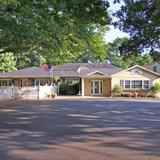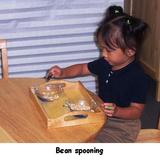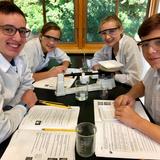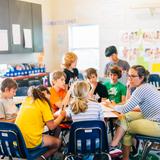Noble World Montessori School acknowledges that each child is endowed with a unique set of abilities and potential. We are dedicated to the joyful discovery of each child's inherent abilities and potential.
Our teachers and staff inspire and nurture children to become cosmic citizens by embracing the methodology and teaching philosophy of Dr. Maria Montessori.
We strive for a balance between freedom, order and responsibility by guiding the child to develop moral and emotional behavior, attitudes and habits, which help him/her to become a fruitful contributing member of his/her family and society.
Quick Stats (2025)
- Top Ranked GA School
- School Type: Montessori School
- Grades: Nursery/Preschool-1
- Enrollment: 58 students
- Yearly Tuition: $10,000
- Acceptance rate: 70%
- Average class size: 16 students
- Application Deadline: None / Rolling
- Source: Verified school update
Top Rankings
Noble World Montessori School ranks among the top 20% of private schools in Georgia for:
Category
Attribute
Acceptance Rate
Advanced Degrees
School Overview
School Type
Religious Affiliation
Grades Offered
Grades Nursery/Preschool-1
Year Founded
1993
Summer School Offered
Yes
Summer Program Details
Student Body
Total Students
58 students
Student Body Type
Co-ed
% Students of Color
50%
State avg.: 27%
Students by Grade
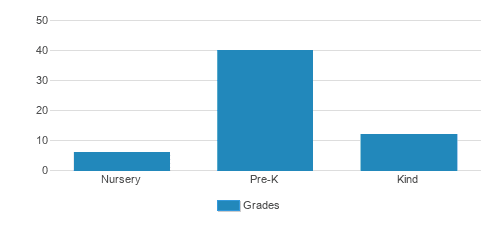
Academics and Faculty
Total Classroom Teachers
12 teachers
Student : Teacher Ratio
5:1
National avg.: 13:1
% Faculty w/Advanced Degree
100%
Average Class Size
16 students
Classroom Dress Code
Casual
Tuition and Acceptance Rate
Admission Deadline
None / Rolling
Yearly Tuition Cost
$10,000
Tuition Notes
Tuition range $10,00.00 to $14,500.00
Summer Program Cost
$300
Summer Program Cost Notes
School offers 10 Consecutive weeks of summer camp from 8:00 am- 6:00 pm
% on Financial Aid
1%
Average Financial Aid Grant
$3
Acceptance Rate
70%
National avg.: 85%
Admissions Director
Ms. Bezi Jones
Admissions Associate
Ms. Avichal Jain
Extracurriculars
Total ExtracurricularsTotal Extra-curric.
6 extracurriculars
ExtracurricularsExtra-curric.
French, Martial Art
Arts and Music Programs:
Art, Ballet, Chinese, Spanish
Arts and Music Programs:
Art, Ballet, Chinese, Spanish
School Notes
- Primary Program
- The conscious period(Ages 2 - 6 + years)
- The Primary Level also known as Children's House -is a multiage of children from 2 1/2 to six years old who live and learn together in a prepared environment that offers choices of individual activities that aid the child's work of "self construction." The Montessori guide cultivates in children the ability to choose freely, to sustain focused and concentrated attention, to think clearly and constructively, and to express themselves through language and arts. Through active development of will and satisfaction of their authentic needs, children become self-disciplined and socially cohesive.
- Areas of activity of the primary level are practical life, sensorial, language art, mathematics, science, botany, art, history, zoology, geography, and cultural subjects. The extensive sets of Montessori materials in each of these areas are designed to appeal to the children's deep interest and to inspire repeated activity. The children's absorbent minds take in vast amounts of information and grasp sophisticated relationships and principles wholly and effortlessly.
- Guided by their human tendencies, following their sensitive periods and according to their plane of development, the children experience great joy in educating themselves. Children become normalized and reveal characteristics seldom recognized as typical of young children. Over the three-year cycle, children develop expertise, become leaders of their community, and manage the social and practical affairs of their classroom. To insure success after initial struggle new challenges are prepared for indirectly and presented only after indicated by careful observation.
- The classrooms are deliberately prepared with stimulating materials and child-sized furniture and equipment.
- Learning is from concrete to abstraction with hands-on specially designed Montessori materials for practical life, sensorial, language art, math, art, science, geography, and culture.
- Observation and exploration make discoveries, and with their imaginations learning germinates
- Students choose activities from the prepared environment and work at their own pace alone, or in small or large groups.
- Directress guides students so children can explore and come up with solutions on their own rather than rely on the teacher to supply the answers.
- Art, music, and movement teachers work with all children on a regular basis. Library resources are also available to each child.
- All children bring a lunch and remain in their own classrooms to eat. During afternoon, children 4-year old and younger take nap and Kindergarteners participate in many of the same activities that are offered during the morning hours, but in a more enriched format, with more group interaction
- Children stay in the same classroom for 3-year cycle.
- Children must be Toile-trained 2 -6 year old.
- Half-day (9:00 -Noon), full-day (9:00 3:00), and all-day programs available.
- Child care is available before and after school from 7:30 am 6:00 pm.
- We believe that even very small child can be responsible for the care of themselves and their own environments.
- Children must attend 5 days a week. Though our core program is from 9:00 a.m. - noon. However, extended hours from 7:30 a.m. to 6 p.m are available.
- Parents are encouraged to schedule times to observe their child's class during the school year. Teachers will always arrange a time to talk with you if you have any concerns. Conferences are held twice a year to discuss your child's progress.
- Parent meetings and educational seminars that focus on Montessori education at each level of child development are an integral part of our school's culture.
- For more information on Infant and Toddler program please go to www.nobleworldms.com.
Source: Verified school update
Frequently Asked Questions
How much does Noble World Montessori School cost?
Noble World Montessori School's tuition is approximately $10,000 for private students and $300 for summer students.
What is the acceptance rate of Noble World Montessori School?
The acceptance rate of Noble World Montessori School is 70%, which is lower than the national average of 80%. Noble World Montessori School's acceptance rate is ranked among the top private schools in Georgia with low acceptance rates.
Does Noble World Montessori School offer a summer program?
Yes, Noble World Montessori School offers a summer program. Visit their summer school page for more information.
What is Noble World Montessori School's ranking?
Noble World Montessori School ranks among the top 20% of private schools in Georgia for: Lowest average acceptance rates and Highest percentage of faculty with advanced degrees.
When is the application deadline for Noble World Montessori School?
The application deadline for Noble World Montessori School is rolling (applications are reviewed as they are received year-round).
School Reviews
Endorse Noble World Montessori School. Endorsements should be a few sentences in length. Please include any comments on:
- Quality of academic programs, teachers, and facilities
- Availability of music, art, sports and other extracurricular activities
- Academic or athletic awards
Recent Articles

A Parent's Guide To Understanding High School Teaching Methods
This comprehensive guide helps parents navigate the various teaching methods used in today's high school classrooms. By understanding these approaches, you'll be better equipped to support your teen's learning journey, communicate effectively with teachers, and create a complementary learning environment at home.

February 08, 2025
Social Emotional Learning: Education's Hidden SymphonyA musician's perspective on Social Emotional Learning reveals how this educational framework orchestrates success through five essential emotional competencies.

January 24, 2025
A Roadmap For Starting A Private SchoolUse this roadmap as a set of talking points with your trusted mentors and professionals to start the private school of your dreams. You're not alone. Over the years, hundreds of folks like you have had the same dream. From Quintilian to Maria Montessori to Lucy Madeira Wing, visionary educators have established schools to teach according to their beliefs and methodologies.

